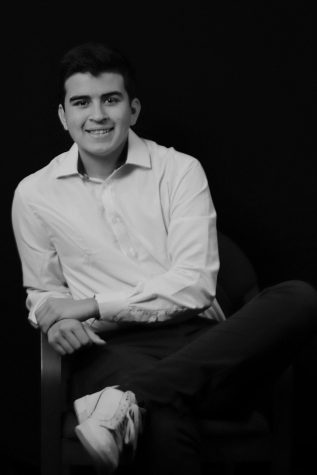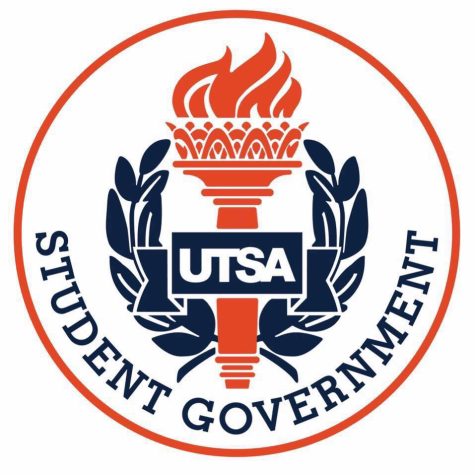Researchers promote Latinx participation in STEM field
February 4, 2020
A group of UTSA researchers has partnered with the San Antonio Independent School District (SAISD) to diversify the Science, Technology, Engineering and Mathematics (STEM) field starting at the high school level by training Latinx educators to become computer science teachers.
Dr. Timothy Yuen, associate professor and assistant chair of the Department of Interdisciplinary Learning and Teaching and joint assistant professor in the Department of Computer Science, is leading the research project, which is being funded by a $999,556 three-year grant from the National Science Foundation (NSF).
Yuen believes it is particularly important for Hispanic Serving Institutions (HSI) like UTSA to support the diversification of the STEM field.
“UTSA serves a largely Hispanic student body and community, which makes us a key player in the national movement toward broadening diversity in STEM,” Yuen said. “Our project hopes to create a strong collaborative of computer science teachers in San Antonio who will inspire their students within our community to pursue computer science and other STEM careers at UTSA.”
Yuen’s project was spurred, in part, by the fact that Latinx individuals only earn 10% of all bachelor’s degrees in computer science and less than 4% of master’s and doctorate degrees in computer science in the U.S. even though Latinx people make up 17% of the population.
UTSA is ahead of the trend regarding the number of its Latinx students earning bachelor’s degrees in computer science. Over the last 10 years, 38% of all UTSA students earning bachelor’s degrees in computer science were Latinx, and in the 2018-2019 academic year, over 40% of bachelor’s degrees in computer science were awarded to Latinx students. However, according to figures provided by Brian Cordeau, assistant vice provost for institutional research, from the fall of 2009 until the summer of 2019, only 6% of students earning a master’s degree in computer science were Latinx.
Over the same period of time, international students were earning the majority of master’s degrees in computer science, earning 68% of all degrees and white students earned 14% of all computer science master’s degrees.
15 SAISD high school educators will be selected each year for two years to be trained in a summer institute and monthly workshops. This will prepare them to earn certifications to teach computer science courses as a part of the CS4SA-HS program Yuen and other researchers are developing. The CS4SA-HS program is also designed to train educators to teach in diverse classrooms.
Yuen explained why he believed that is an important component of his project.
“The CS4SA-HS program promotes the concept of culturally responsive teaching in which teachers respect the cultural and linguistic diversity of their students,” Yuen said. “As with any field, a diverse STEM workforce will allow for new and different perspectives and knowledge skill sets to come together to form new innovations.”
One of the ways that Yuen wants to prepare these educators to teach diverse classrooms is by collaborating with Youth Code Jam summer camps.
“Youth Code Jam will be an important part of [the] preparation by offering computing camps throughout San Antonio and other locations in Texas,” Yuen said. “Our teacher participants will have the opportunity to observe how experienced Youth Code Jam instructors teach computer science to high school students as well as engage in teaching activities … Our [NSF] grant will fund 60 high school students to attend Youth Code Jam camps so that our teacher participants will work [in] the same diverse learner populations as in their classrooms.”
Yuen’s research will result in a better understanding of how these types of teacher training programs can diversify the STEM field.
“The research investigates the best practices and outcomes of teacher professional development programs … in terms of transforming current non-computer science teachers to … effectively teach computer science in culturally and linguistically diverse classrooms,” Yuen said. “In doing so, we want to investigate how this type of teacher professional development can lead to increasing Latinx and other minority populations in computer science and other STEM fields.”
Yuen hopes that this research project is the beginning of a shift in STEM education for Latinx educators and students.
“Within this grant project, we are also preparing our teacher participants to become advocates for computer science education within their schools across the district,” Yuen said. “Teacher participants should inspire and prepare their other colleagues to also become computer science educators.”
After the three-year NSF grant, Yuen wishes to continue this type of training throughout San Antonio.
“Ideally, after our three-year grant, our team will be able to work with other school districts across San Antonio to increase the number of qualified computer science teachers in the classroom,” Yuen said.











